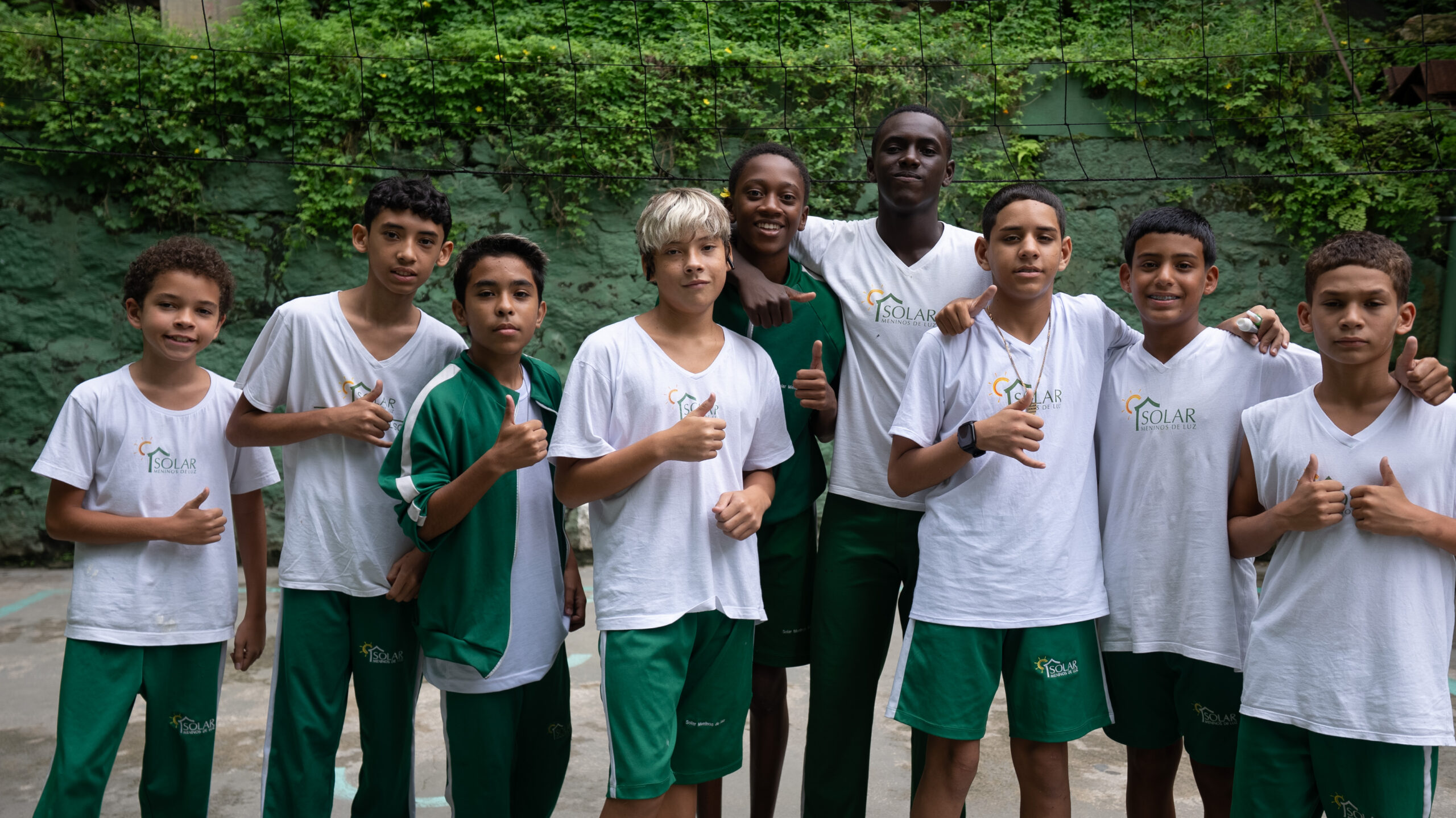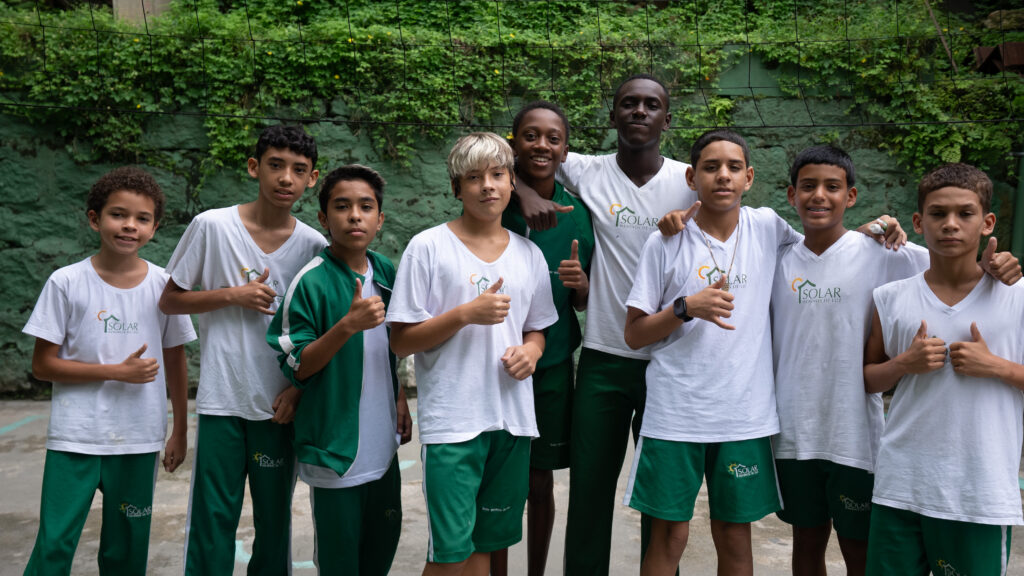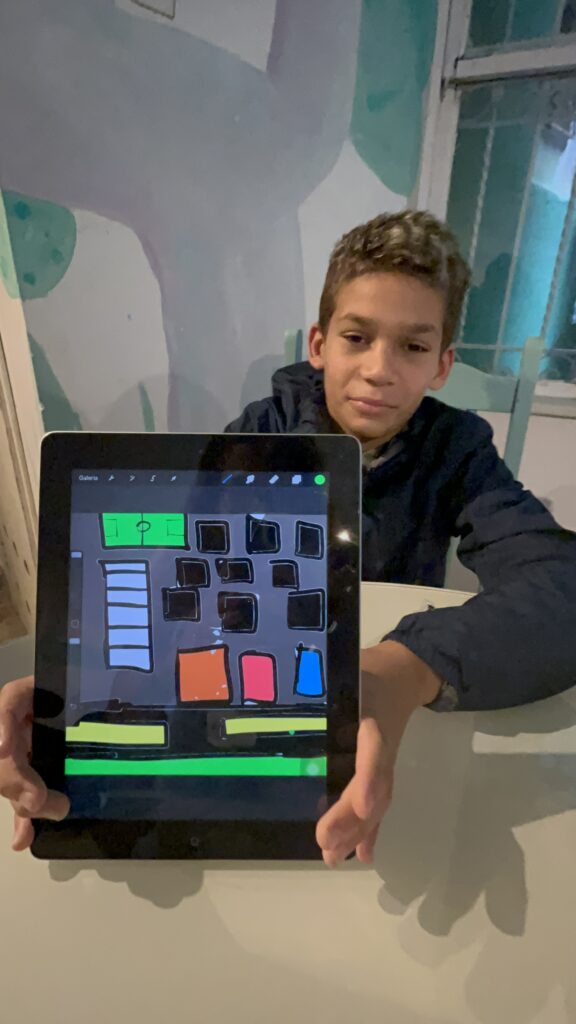Login
Signup
The Pressure to Work Too Young: Why Support Matters

One of the stark realities for teenage boys growing up in Rio de Janeiro’s favelas is the pressure to abandon their studies and begin working at an early age. In households where income is scarce and families often rely on every available hand to contribute, education can feel like a burden rather than a right. The outside world, with its opportunities and futures, seems distant and inaccessible, and the urgency of survival takes precedence over long-term ambition.
Pressure
This pressure is not born from a lack of aspiration. Many boys dream of becoming engineers, athletes, or entrepreneurs. The challenge is that their dreams are too often interrupted by the weight of responsibility — the need to put food on the table today. As a result, potential is curtailed not by talent but by circumstances, with boys leaving school years before they should, cutting short their chances of building sustainable futures.
“I want to keep studying, but my family is in need of money. My mom works hard, my brother and his wife work, and I feel I have to contribute to our family too. It feels like I have no choice.” — Pedro, 15 years old
Our Goal
EduMais understands these dynamics all too well. In our English, Enter the Labor Market Preparation, and Serious Game Design courses, we encounter students at this crossroads: teenagers pulled between education and employment. Our goal is to give them reasons to stay in school — to help them imagine, and then build, lives that extend beyond immediate survival.
Take, for example, the experiences of students in our “Enter the Labor Market” program. Through practical tools like Ikigai, the 24 Character Strengths test, LinkedIn profile building, CV writing, job searches, and mock interviews, they begin to see pathways that connect education with meaningful employment. In our Serious Game Design course, teenage boys discover that creativity and coding can become real career opportunities — unimaginable without access to such training. Even our English classes serve as windows into a wider world, showing them that language skills can open doors far beyond their communities.
“When I learned how to write my CV, I started to believe I could get a job that wasn’t just cleaning or carrying things. I saw more options for my future.” — Samuel, 18 years old
+1 year = + 10%
The impact is measurable. According to the World Bank, each additional year of schooling increases future earnings by an average of 9–10% [World Bank, 2018]. For a boy on the verge of leaving school, that extra year is not just about learning grammar or algebra — it’s about earning enough later in life to support himself and his family sustainably. It’s about reducing vulnerability to cycles of poverty and violence. It’s about hope. Education is, quite simply, the most powerful insurance against poverty.
Change takes time
Of course, change does not happen overnight. It requires consistent mentorship, supportive environments, and the removal of barriers such as lack of resources or family expectations. But every time a boy resists the pressure to work too young and stays in school instead, the ripple effects are profound: for his family, his community, and his future.
“I want to finish school and go to university. If I start working too early, I’ll never get that chance.” — Ryan, 16 years old
Every year a student stays in school, their future income can rise by nearly 10%. That means your support is not just a gift today — it’s an investment in a lifetime of opportunity.
At EduMais, we believe that no teenager should have to choose between learning and survival. By supporting our programs, you help ensure that boys in Rio’s favelas can remain in the classroom, nurturing their dreams rather than trading them for premature responsibility.
Together, we can transform the story from one of sacrifice to one of success.
Partner with EduMais to ensure boys in Rio’s favelas can stay in school, finish high school, and build a better tomorrow.

